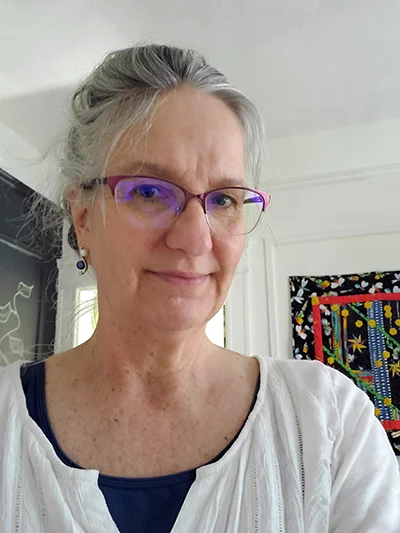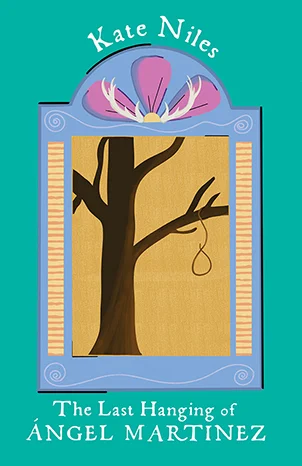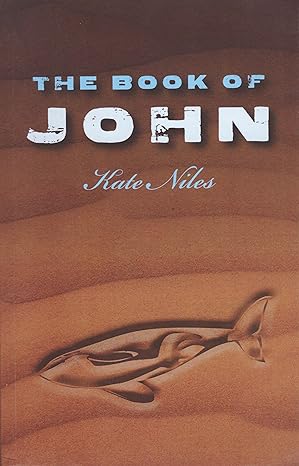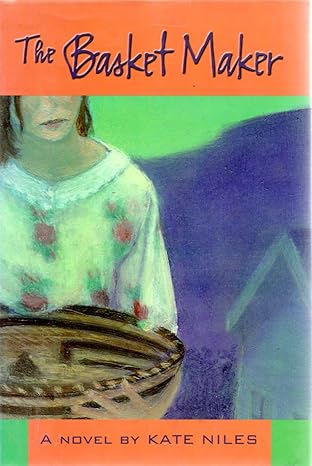Kate Niles. Writer and Eternal Student of the Human Condition.
Winner, Silver Award for Mystery 2024, Foreword Reviews Best of the Indies
Winner (First Prize), Zia Award for Best New Mexico Fiction 2024.
Learn More >>>
The Book of John
Learn More >>>
The Basket Maker
Learn More >>>

About Kate
I began keeping a diary when I was about ten years old. From ages nine to eleven I suffered severe sexual, emotional, and physical abuse at the hands of my parents and I survived by closing the door to my room, reading voraciously, and writing. There was abuse before this time, but I was too young to know how to assimilate any it and it seemed to reach some sort of odd crescendo in those two years. Through writing I inadvertently found a way back to some sanity, and to project my hopes and dreams of some better world onto the page. Besides the diaries, I hand-wrote at least a hundred pages of several attempts at historical romances in the vein of Phyllis A. Whitney and Victoria Holt. Literary mavens may scoff at these two writers, but I read every one of them and they provided, believe it or not, a model by which a young woman could actually negotiate with a man for a desirable life. This was not, despite all outward protestations of my parents’ liberal academic facade, what I learned at home. At home I had no rights.
To Kill a Mockingbird was the book that whispered to me that I had a novel to write, and I have read it five times. Scout Finch is my literary doppelganger – scrappy, smart, not interested in fluffy dresses – but with a good father and a replacement mother in the form of the ever-competent Calpurnia. Something about having a father who actually believed in justice, and defended a black man while pointing the finger at the incestuous father, was compelling. No one in my life was going to defend me, or apprehend my own father, and perhaps above all, as Miss Maudie Atkinson says so well, I yearned for parents who were “the same in public as they were in private.” In other words, integrity would have been nice, and books like this allowed me space to imagine that such things were possible.
I thus wrote The Basket Maker, the story of my abuse, but with a way out of it via human community, interested ghosts, and the natural world. We need all of these things for a rich life, and for a world big enough to hold our pain. The other thing that saved my life as a child was Mesa Verde National Park, and the Indian ruins therein. I absolutely fell in love. I learned the entire prehistoric sequence for the Puebloan Southwest by age ten, and spent hours poring over National Geographic stories on Louis Leakey and his finds in Africa. I was an anthropologist from the get-go, and remain one to this day. Hence, my second novel, The Book of John, is about my time spent doing archaeology, and about understanding how we come to split off from ourselves, cheat on our loved ones, spit on each other, and return to some sort of spiritual harmony. It is a homage to my early adult years spent doing archaeological work for the National Park Service and the State of New Mexico, among others. It is also a love letter to those friends from that time who helped me more than they will ever know.
I have published a book of poems, Geographies of the Heart, as well as, over the years, many short stories, essays, and even magazine columns. I have been nominated for a Pushcart Prize and won Book of the Year for The Basket Maker from ForeWord Magazine, the independent press world’s industry journal. I have also been honored with a Colorado Individual Artist Fellowship and other awards. I hold an MFA from Vermont College of the Fine Arts and have found their alumni community and offerings invaluable over the years. But more than anything, I find myself coming back to that One Story they say every writer tackles over and over again in themselves – and that is my broken-hearted experience with my father, how such inhuman treatments are possible in the human, and what is needed to heal it. As Faulkner famously said, the only thing worth writing about is the conflict of the human heart. I might rephrase this simply to say the only thing worth writing about is how that conflict manifests, and what allies we make (snow geese, mountains, whales, Indian ghosts, Indian ruins, art, other people, lovers) to heal it.


